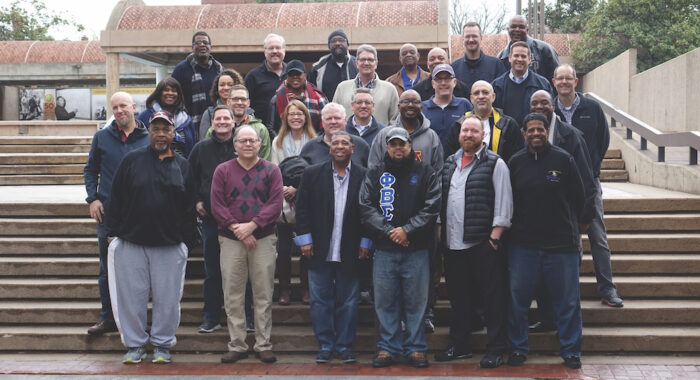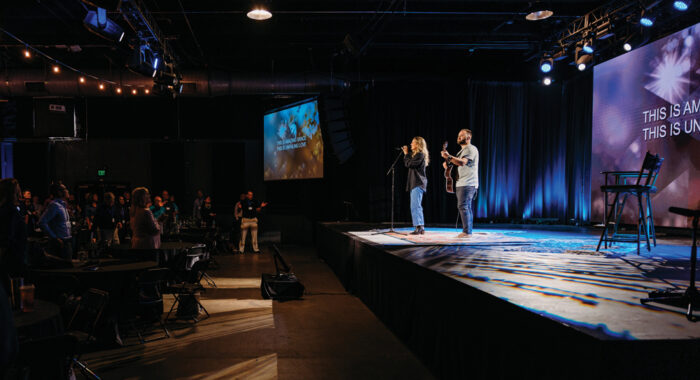“Have Smartphones Destroyed a Generation?” This was the question posed by San Diego State University’s Jean Twenge in the September 2017 issue of The Atlantic. It’s a really good title for a magazine article as it speaks directly to the fears I’ve heard echoed from adults and parents as I’ve traveled the country offering parenting workshops at schools and churches.
For Christians and church leaders my response to Twenge is simple: It doesn’t really matter. Seemingly for all of modern history, people worry about the latest trends. But these are just distractions from our mission. The same things parents say about children playing too many video games today were said in 1987. This is what old people do to young people: fret that they are ruining everything.
What we personally think about changes in society is secondary to the Great Commission work of reaching our contemporary culture. Jesus’ universal command remains the same: Love the Lord our God with all our hearts, minds and souls, and love our neighbors as ourselves.
Let’s not waste our time wringing our hands to the point of inaction. Instead, let’s look for opportunities to engage with culture the way Paul did, “People of Athens! I see that in every way you are very religious. For as I walked around and looked carefully at your objects of worship, I even found an altar with this inscription: to an unknown god. So you are ignorant of the very thing you worship — and this is what I am going to proclaim to you” (Acts 17:22-23).
Instead of focusing energy on what we don’t like about smartphone culture, let’s redouble our efforts to deeply understand today’s society. Let us minister from optimism in all that the Holy Spirit does through us, not lament at comparisons to the good old days. Let’s face it: The good old days weren’t nearly as great as we remember them anyway.
The Least Powerful Person in the Room
The pulpit has changed as a result of smartphone technology. For generations, when someone stepped into the pulpit, they became the most powerful, authoritative voice. Usually, they stepped onto a platform or stood behind a lectern while others were seated in a room with all eyes on them. Their amplified voice overcame all other noise.
For millennia the pastor in his pulpit enjoyed this power. However, smartphones have reversed that power dynamic. The pulpit voice is now disconnected and tied to a linear, pre-determined script. The Sunday morning message is now subject to instant fact-checking, to texting conversations among hearers, to social media dialogue and (I will confess) a little shopping during the dull parts. Since everyone has a smartphone on them, the pulpit’s authority is no longer necessarily the loudest voice in the room. Attention is now politely requested. Sometimes it’s given. Sometimes it isn’t.
Don’t be threatened by this new reality. Change creates opportunity! Don’t guilt your congregation to turn off their phones. Instead, shift the focus of your message by offering something they can’t get on Facebook or from their favorite podcasting pastor.
The great opportunity smartphones bring churches is connection. We no longer need to gather each week for more information. We have information at our fingertips whenever we want it. Instead of information sharing, the pulpit can be a place to connect our hearts and minds to what God is doing in our congregation, neighborhoods and cities. I can’t remember a time when a congregation pulled out their phones to snap a photo during an information-based sermon. But the congregation celebrating the testimony of a life changed by Jesus, the baptism of a new believer, or child dedication? Even old grannies pull out their phones for that.
Healing a Divided Society
I’m only 41 years old, but I have a hard time remembering a time period quite as weird as this one. The current political situation is a dangerous mix of very interesting and very toxic. It seems like everyone wants to talk about politics — usually leading off by quipping that they don’t want to talk about politics. Yet people seem divided on not just the actual politics but also whether they even want to have the conversation.
I believe there is an opportunity for churches to lead people beyond what to think about the politics of the day, but instead to teach how to think about today’s important issues as dual citizens of our country and the kingdom of God.
Over the past month I’ve interviewed about a dozen pastors about how they are leading their congregations during this time of political division. While these pastors seem divided on how to cope with the political climate individually — particularly in their strategies on how their own staff engages or does not engage with political discussions on social media — they are universally recognizing the hurt.
My encouragement is for your congregation to lead the way in your community in creating spaces for dialogue. Every day our Facebook and Twitter newsfeeds are full of stories about big, important issues of the day like racism, violence, sexual harassment and equality, and yet there are very few places in our lives to turn to where we can process these things. I meet people in my community who know I’m a Christian and ask me, “Where are the Christian leaders? Our community is hurting and all they are posting on Twitter is an invitation to their next church event.”
We all know that social media can become an echo chamber. It’s my hope that churches — especially within the evangelical tradition which has historically cherished intellectual honesty — can become trusted voices in our communities where we can gather to learn both about the issues of the day as well as how to talk about them in a way that honors our relationship with Jesus. Likewise, there is a huge opportunity for Christian leaders to act as the social media moderators in helping people discuss, even disagree, in ways that are respectful and honoring of all people.
The Sabbath is Healthy and Necessary
I’ll close with one last opportunity technology and social media present for the church. Every person I meet, whether a child, teenager or adult, is grappling with some form of Internet addiction. The devices we love are double-edged swords. They are so fun, so useful and so entertaining that we want to use them all the time. This is particularly acute among adults — many of whom have learned that technology allows them the chance to work whenever, wherever and for however long they’d like.
As Christians this is an opportunity to get a refresher about the purpose of the Sabbath. Sabbath isn’t just about resting or doing nothing; it is also about trust. At its core, for humans, the Sabbath commandment asks us to trust God to provide seven days of resources with only six days of work.
In the United States most of us don’t really need to work seven days per week. But you can imagine that in other places, in other times, the Sabbath commandment meant that you had to haul double the water or figure out how to make extra food or how to take care of your animals before the Sabbath began.
We now live in a time that allows us, in one form or another, to work 24 hours per day, seven days per week. We don’t have to trust that everything is OK at work or even at home. One of the greatest opportunities the church has today is to model the power that the principle of Sabbath can have in our walk with Jesus.
In our house we aren’t legalistic about it, but we are fairly practical. We have two Sabbath practices. On Sunday, our Sabbath day, we go to church in the morning, and when we come home we don’t use Internet-connected devices until after dinner. Sometimes we go to the beach or work in the garden or play board games or just take a nap. But the one thing we don’t do is work (or homework!).
And then throughout the week we set aside the dinner table as a device-free zone. For me — probably the most device dependent of the five of us — that means that before dinner I put my phone on silent and leave it somewhere else in the house, so I’m not distracted by the knowledge that it exists. For the next 10-20 minutes, our family sits around the table enjoying a meal while not looking at our phones. These things are glorious and simple, almost as if they were one of the 10 commandments.
This article originally appeared in Evangelicals magazine.
Adam McLane is partner at The Youth Cartel, which provides professional coaching, strategic consulting, events and resources that advance youth ministry in new ways. He is the author of “Tuning In: Six Ways to Reclaim Your Life From Technology.” McLane previously served as consumer engagement manager at Youth Specialties and president of Youth Ministry Exchange. He holds a B.A. in youth ministry from Moody Bible Institute.




 View All Articles
View All Articles 





























